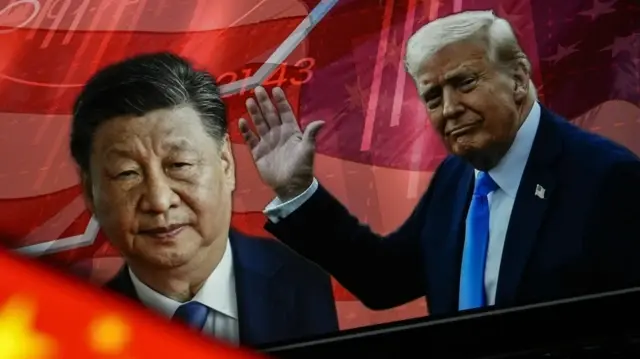China halts rare earth export limits to US for one year after talks

Beijing announced it will pause its rare earth export restrictions targeting the United States for a one-year period, following the meeting between Chinese President Xi Jinping and US President Donald Trump in South Korea. Both countries also agreed to ease certain tariffs and review trade measures in the coming months.
China’s Ministry of Commerce said on Thursday that it will temporarily suspend the export controls placed on rare earth materials destined for the United States, a move that follows high-level discussions between Presidents Xi Jinping and Donald Trump in South Korea. The decision confirms Trump’s earlier statement that both sides had reached an understanding to ease recent trade tensions.
Suspension of rare earth measures
According to the ministry’s written statement, “China will suspend the implementation of relevant export control measures announced on October 9 for one year and will study and refine specific plans.” The statement added that Beijing will make corresponding adjustments to its countermeasures against US tariffs, signaling a coordinated de-escalation effort between the two major economies.
US delays new export restrictions
In response, Washington agreed to postpone a new rule announced on September 29 that would have broadened its “entity list” restrictions. The United States will suspend the rule’s implementation for one year, allowing companies partially owned by blacklisted entities to continue certain transactions during that time.
Trade easing and tariff reductions
Earlier this week, Trump stated that the US would lower tariffs on Chinese imports linked to the flow of fentanyl from 20% to 10%, bringing the overall tariff rate down to 47%. He also confirmed that China will resume purchases of American soybeans and continue supplying rare earth elements—critical for high-tech industries such as semiconductors and defense manufacturing.
Background on previous restrictions
Beijing had expanded its rare earth export restrictions on October 9, limiting the export of processing and manufacturing technologies and tightening cooperation with foreign firms without prior government approval. In response, Trump threatened to impose 100% tariffs on Chinese goods starting November 1, a move that has now been set aside after the diplomatic breakthrough in South Korea.
The latest decisions are being closely monitored in Türkiye and other global markets, where stability in US-China trade relations plays a key role in shaping supply chains and commodity prices.
Reklam yükleniyor...
Reklam yükleniyor...







Comments you share on our site are a valuable resource for other users. Please be respectful of different opinions and other users. Avoid using rude, aggressive, derogatory, or discriminatory language.